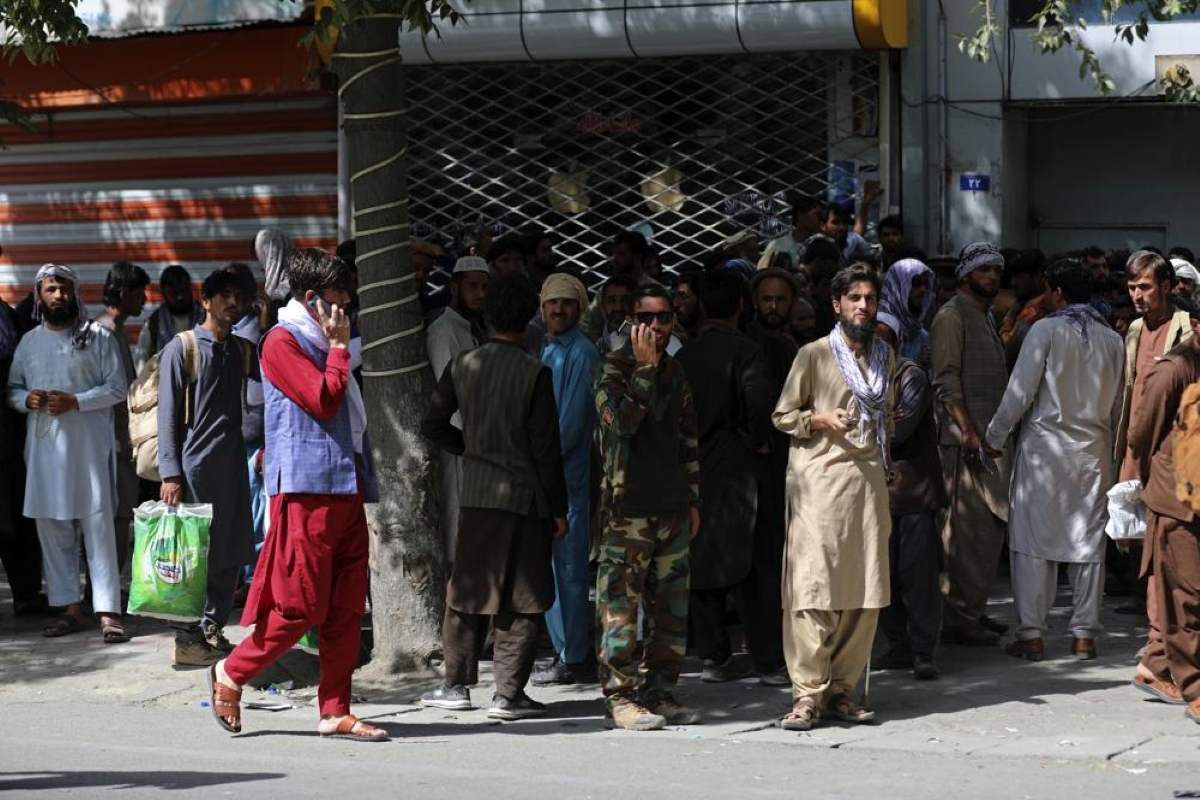As Kabul fell to Taliban throes, thousands of foreigners and Afghans rummaged ways to flee to safety while US military helicopters whisked American diplomats to Kabul’s airport.
The US took control of the air traffic to safeguard a massive air-lift. NATO allies had pulled out their troops ahead of Biden administration’s intended 31 August withdrawal.
Advertisement
Sporadic gunfire at Kabul international airport fanned fear of Taliban rule leading to a fracas during evacuation.
Some complained the U.S. was failing to move fast enough to bring to safety Afghans at risk of reprisal from the Taliban for past work with the Americans and other NATO forces.
“This is murder by incompetence,” said U.S. Air Force veteran Sam Lerman, struggling on Sunday from his home in Woodbridge, Virginia, to find a way out for an Afghan contractor who had guarded Americans and other NATO forces at Afghanistan’s Bagram air base for a decade.
Massouma Tajik, a 22-year-old data analyst, was among hundreds of Afghans waiting anxiously in the Kabul airport to board an evacuation flight.
“I see people crying, they are not sure whether their flight will happen or not. Neither am I,” she said by phone, with panic in her voice.
Educated Afghan women have some of the most to lose under the fundamentalist Taliban, whose past government, overthrown by the U.S.-led invasion in 2001, sought to largely confine women to the home.
A joint statement from the U.S. State and Defense departments pledged late Sunday to fly thousands of Americans, local embassy staff and other “particularly vulnerable Afghan nationals” out of the country.
It gave no details, but high-profile Afghan women, journalists, and Afghans who’ve worked with Western governments and nonprofits are among those who fear Taliban targeting for alleged Western ways or ties.
The statement promised to speed up visa processing for Afghans who used to work with American troops and officials in particular.
An Italian journalist, Francesca Mannocchi, posted a video of an Italian helicopter carrying her to the airport, an armed soldier standing guard at a window. Mannochi described watching columns of smoke rising from Kabul as she flew. Some were from fires that workers at the U.S. Embassy and others were using to keep sensitive material from falling in Taliban hands.
She said Afghans stoned an Italian convoy. She captioned her brief video: “Kabul airport. Evacuation. Game Over.”
Hundreds or more Afghans crowded in a part of the airport away from many of the evacuating Westerners. Some of them, including a man with a broken leg sitting on the ground, lined up for what was expected to be a last flight out by the country’s Ariana Airlines.
U.S. officials reported gunfire near the airport Sunday evening and urged civilians to stop coming. U.S. military officials later announced closing the airport to commercial flights, shutting one of the last avenues of escape for ordinary Afghans.
The Pentagon intends to have enough aircraft to fly out as many as 5,000 civilians a day, both Americans and the Afghan translators and others who worked with the U.S. during the war.
But tens of thousands of Afghans who have worked with U.S. and other NATO forces are seeking to flee with family members. And it was by no means clear how long Kabul’s deteriorating security would allow any evacuations to continue.
German Foreign Minister Heiko Maas, whose government had been one of many expressing surprise at the speed of the U.S. withdrawal, told reporters in Berlin on Sunday that it was “difficult to endure” watching how quickly the Taliban took control of Afghanistan and how little government troops were able to do to stop them.
At a North Carolina-based adoption agency, Mary Beth Lee King sought a way to extricate two Afghan boys, ages 11 and 2, due for adoption by families in America.
“I am terrified and heartbroken. I can only imagine what they themselves are feeling,” King said of the children’s adoptive parents and Afghan families.
“Even if the U.S. won’t admit them to the U.S., get them somewhere, so that … we know that they are alive and safe,” she said of the two Afghan children.











